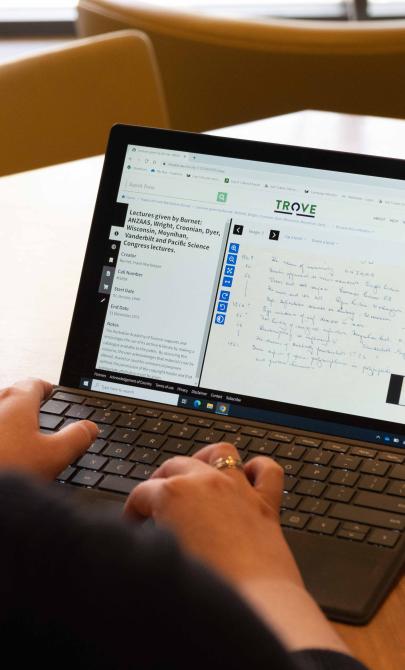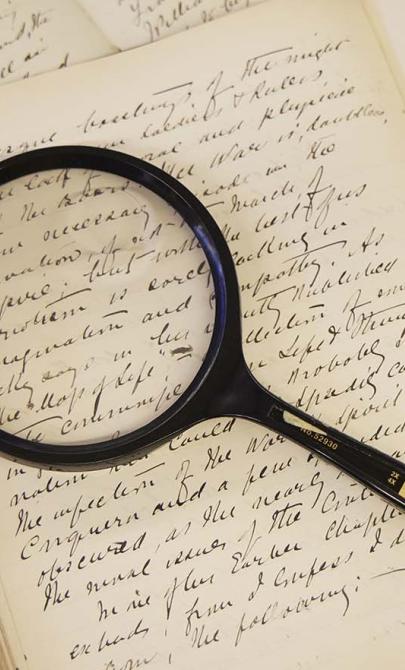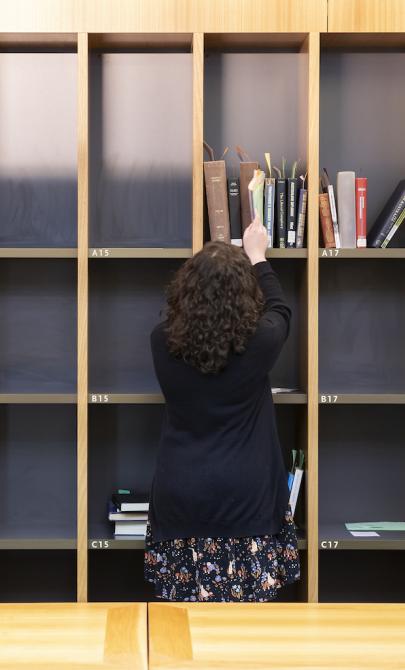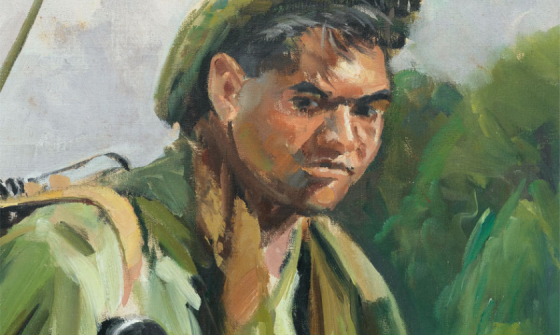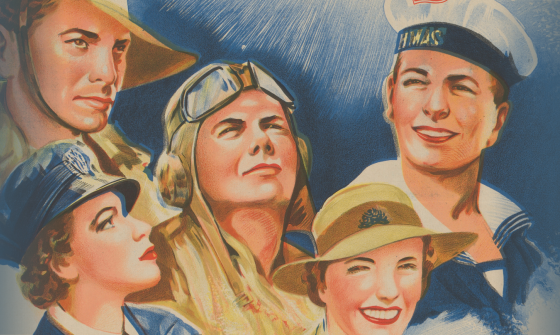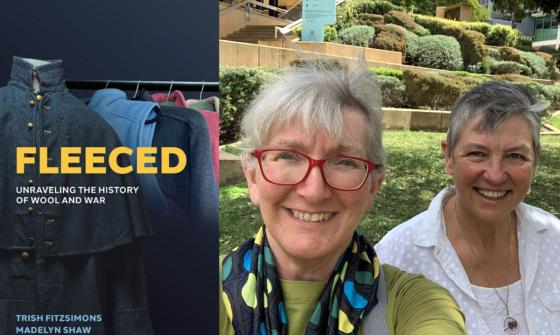Baracchi Collection
Key items in the collection
This collection hosts a range of formats, including:
The Baracchi Collection holds 374 pamphlets and periodicals published between 1914 and 1975, mainly in Australia. The materials cover topics like communism, socialism, fascism, capitalism, politics, international relations, public finance, World War II, and the Vietnam War.
The collection features rare publications from groups such as the Fourth International (Australian Section), the Australian Labor Party, the Communist Party of Australia, and the Vietnam Action Committee. Notable Australian authors include Frank Anstey, Katharine Susannah Prichard, and Lloyd Ross. International authors like Karl Marx, Leon Trotsky, and Petr Kropotkin are also represented.
Beyond political writings, the collection includes poetry books and exhibition catalogues.
The collection includes four unsigned pastel portraits of Baracchi, painted near the end of his life.
Baracchi's personal papers, spanning 1904 to 1975, include correspondence, personal documents, financial records, manuscripts, notebooks, subject files, speeches, photographs, newspaper clippings, programs, journals, and other publications.
About Guido Carlo Luigi Baracchi
Early life and education
Guido Carlo Luigi Baracchi (1887–1975) was born in Melbourne to Pietro Baracchi, a government astronomer, and his wife, who came from a wealthy family. Educated at Melbourne Church of England Grammar School and the University of Melbourne, Guido inherited financial independence after his mother’s death in 1908, allowing him to pursue his interests without financial constraints.
Political activism and communist involvement
In 1913, Baracchi travelled to Europe, where he embraced guild socialism. Back in Melbourne, he became a prominent anti-war activist and was imprisoned in 1918 for opposing recruitment efforts. He joined the International Industrial Workers and edited its journal Industrial solidarity. A founding member of the Communist Party of Australia in 1920, he co-edited Proletarian review.
Baracchi participated in international communist movements in Germany and Britain. However, his alignment with Trotskyist ideas led to his expulsion from the party in 1925 and again in 1940.
Despite these setbacks, Baracchi continued his political journey, working as a translator in the Soviet Union, lecturing in economics at the Victorian Labor College, and advocating for socialist ideals within the Australian Labor Party. He opposed the Vietnam War and remained committed to workers’ control of industry.
Personal life and cultural influence
Known for his wealth and sophistication, Baracchi moved in literary and artistic circles as well as socialist and communist communities. From 1933 to 1941, he lived with playwright Betty Roland. His unique combination of privilege, intellect, and activism left a lasting impression on Australia’s political and cultural history.
Background to the collection
Baracchi donated his books and papers to the Library, with the collection arriving in 1976. Any items already held by the Library were returned to his daughter, Gilda Baracchi. Additional papers from both Guido and Pietro Baracchi were later donated by Gilda Baracchi under the Taxation Incentives for the Arts Scheme in 1991, 1993, and 1995.
The pamphlets in the Baracchi Collection are kept together as a formed collection within the Australian Collection. They have been catalogued individually and the call numbers have the prefix BACHp.
The portraits of Baracchi are held in the Pictures Collection.
The personal papers of Baracchi are held in the Manuscripts Collection. Use the finding aid.
The papers of Pietro Baracchi, the father of Baracchi, are held in the Library at MS 8913. They comprise diaries, scientific notes, records of field trips, photographs and pamphlets. Use the finding aid.
The papers of Betty Roland are also held in the Library at MS 814 and MS 6772. They include copies of letters to and from Baracchi (1934–72). In addition, there is an oral history interview with her recorded by Hazel De Berg in 1971 (ORAL TRC 1/556–557).
This guide was prepared using these references:
- Roger Cotes, Interviews with Guido Baracchi, 1960-1969, ORAL TRC 567.
- Wallace Crouch, Legend of the Left, The Sydney Morning Herald, 1 January 1976, p. 7.
- Robin Gollan, Baracchi, Guido Carlo Luigi (1887–1975), Australian Dictionary of Biography online.
- ‘Obituary of Guido Baracchi’, The Age, 20 December 1975, p. 15.
- Jeff Sparrow, Communism: a love story, Melbourne University Press, Melbourne, 2007
